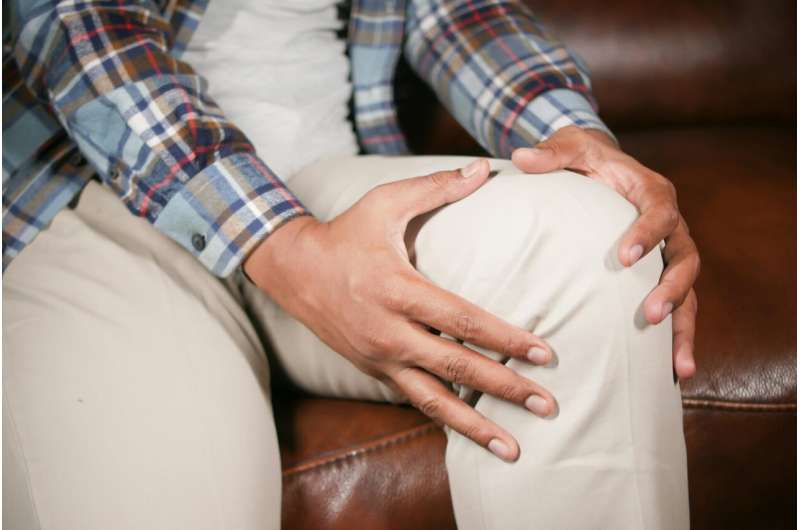The squishy material can be loaded with anti-inflammatory drugs that are released in response to small changes in pH in the body. During an arthritis flareup, a joint becomes inflamed and slightly more acidic than the surrounding tissue.
The material, developed by researchers at the University of Cambridge, has been designed to respond to this natural change in pH. As acidity increases, the material becomes softer and more jelly-like, triggering the release of drug molecules that can be encapsulated within its structure. Since the material is designed to respond only within a narrow pH range, the team says that drugs could be released precisely where and when they are needed, potentially reducing side effects.
If used as artificial cartilage in arthritic joints, this approach could allow for the continuous treatment of arthritis, improving the efficacy of drugs to relieve pain and fight inflammation. Arthritis affects more than 10 million people in the UK, costing the NHS an estimated £10.2 billion annually. Worldwide, it is estimated to affect over 600 million people.

